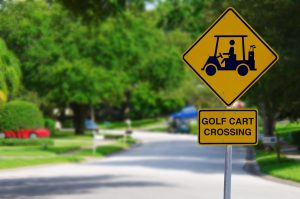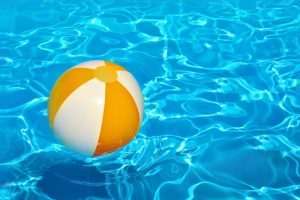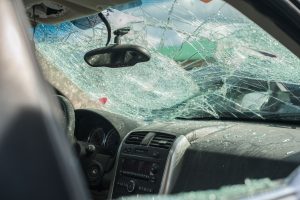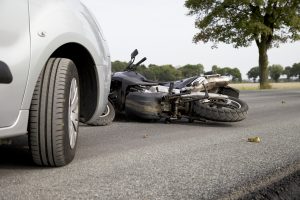Florida Golf Cart Accident Lawsuit Alleges Car Driver Negligence
 In a somewhat recently-filed South Florida golf cart accident lawsuit, plaintiffs allege an elderly gentleman died because a reckless driver failed to use reasonable care.
In a somewhat recently-filed South Florida golf cart accident lawsuit, plaintiffs allege an elderly gentleman died because a reckless driver failed to use reasonable care.
As our Florida golf cart accident lawyers can explain, per F.S. 316.212, golf carts incapable of traveling more than 20 mph aren’t typically allowed to be operated on public roads – unless the roadway has a posted speed limit of 30 mph or less and is specifically designated for golf cart use. Golf carts are allowed to cross portions of a county road intersecting with a road approved for golf carts or a road that intersects a golf course or mobile home park. In any case, the roadway should have posted signs clearly indicating golf cart crossings. Operators of golf carts need not be licensed, but if they’re going to operate on a designated public roadway, they must be at least 14-years-old.
The recent case out of Delray Beach involved an 83-year-old grandfather who died in June after his golf cart was reportedly struck by a car at a crossing near a golf course. The decedent was reportedly crossing South Ocean Boulevard at an intersection with golf cart crossing signs. The Florida golf course accident lawsuit alleges the car driver was speeding, disregarded golf cart warning signs, and improperly passed another vehicle on the road before striking the cart.
According to Palm Beach Daily News, the decedent and his friend had just finished half of their first round of golf and were on their way to the other side of the course – by way of a designated crossing – when they were struck. The posted speed limit on the road is 35 mph. The police reported the defendant driver was traveling somewhere between 45-70-mph at the time of the collision. He reportedly didn’t see the golf cart before it was too late. The cart spun and then flipped. The passenger was pinned underneath, while the decedent was ejected, struck the passenger side of the car and ultimately landed on the road. He later died at the hospital, and is survived by his wife, adult children, and grandchildren.
While the Florida golf cart accident lawsuit is pending in civil court, a state prosecutor declined to press criminal charges. The assistant state attorney said that while the driver was careless behind the wheel, his actions didn’t rise to the level of a criminal offense. Police had initially sought a warrant in the case for vehicular homicide, but the state attorney has prosecutorial discretion. This, of course, underlines a key point in civil litigation, which is that the goals and proof burdens are very different than in criminal court. It isn’t necessary for someone to be charged or convicted in criminal court to prevail in a civil lawsuit. Instead, what is needed is to establish failure to use reasonable care, which is defined as the degree of caution a reasonable person would use in the same or similar circumstances. Continue reading





 Florida Personal Injury Lawyer Blog
Florida Personal Injury Lawyer Blog



 Another rainy season is just around the corner here for us in Southwest Florida, where an average of 56 inches of rain falls annually. Just as safely navigating snow and ice are critical skills for drivers up north, careful driving in severe thunderstorms is imperative for motorists in South Florida. As a longtime
Another rainy season is just around the corner here for us in Southwest Florida, where an average of 56 inches of rain falls annually. Just as safely navigating snow and ice are critical skills for drivers up north, careful driving in severe thunderstorms is imperative for motorists in South Florida. As a longtime  A Florida boating safety bill targeting illegal boat charters and questionable rental companies is wading its way through the state legislature.
A Florida boating safety bill targeting illegal boat charters and questionable rental companies is wading its way through the state legislature. Home swimming pools are nearly as common in Florida as alligators (1.2 million versus 1.3 million). Interestingly swimming pools are actually much more dangerous. Florida swimming pool injuries and deaths over the last 20 years far exceeded those caused by alligator attacks. In fact, drowning is the No. 1 cause of death for children under 4, and Florida consistently reports more swimming pool drowning deaths than anywhere else in the nation.
Home swimming pools are nearly as common in Florida as alligators (1.2 million versus 1.3 million). Interestingly swimming pools are actually much more dangerous. Florida swimming pool injuries and deaths over the last 20 years far exceeded those caused by alligator attacks. In fact, drowning is the No. 1 cause of death for children under 4, and Florida consistently reports more swimming pool drowning deaths than anywhere else in the nation. As a longtime
As a longtime  People patronize Florida salons and spas with the goal of looking and feeling their best. Operators have a responsibility to follow professional guidelines and best practices and avoid using products or processes that will put their clients at risk of physical harm. Unfortunately, as our
People patronize Florida salons and spas with the goal of looking and feeling their best. Operators have a responsibility to follow professional guidelines and best practices and avoid using products or processes that will put their clients at risk of physical harm. Unfortunately, as our  Droves of music-lovers flock to concerts and music festivals because they thrive on the rush of shared energy and musical collaboration. But the presence of so many bodies in close proximity can have deadly consequences, as we saw recently at the Travis Scott Astroworld Festival tragedy in Houston, TX. Crowd surge has been cited in the deaths of at least 9 people and the serious injuries of dozens more. Mounting lawsuits against the performer, the venue, and the organizers are asserting negligence resulting in the concert injuries and deaths.
Droves of music-lovers flock to concerts and music festivals because they thrive on the rush of shared energy and musical collaboration. But the presence of so many bodies in close proximity can have deadly consequences, as we saw recently at the Travis Scott Astroworld Festival tragedy in Houston, TX. Crowd surge has been cited in the deaths of at least 9 people and the serious injuries of dozens more. Mounting lawsuits against the performer, the venue, and the organizers are asserting negligence resulting in the concert injuries and deaths. The potential for serious Florida nursing home injury rises exponentially when facilities are poorly staffed. A recent report from the
The potential for serious Florida nursing home injury rises exponentially when facilities are poorly staffed. A recent report from the  Taking legal action is sometimes the best strategy following a Florida injury in a car crash, slip-and-fall, or medical mistake. However, doing so is typically inadvisable without the aid of a Naples injury lawyer. The first step in that process may be something called a “free consultation.”
Taking legal action is sometimes the best strategy following a Florida injury in a car crash, slip-and-fall, or medical mistake. However, doing so is typically inadvisable without the aid of a Naples injury lawyer. The first step in that process may be something called a “free consultation.” In Florida motorcycle accidents, there can be numerous defendants – sometimes including those who weren’t actually behind the wheel. In a recent motorcycle accident lawsuit that settled mid-trial for $1 million, the defendants included the driver as well as the owner of the vehicle, which in this case was the driver’s employer, a commercial cleaning company. They were held responsible by a legal doctrine called vicarious liability.
In Florida motorcycle accidents, there can be numerous defendants – sometimes including those who weren’t actually behind the wheel. In a recent motorcycle accident lawsuit that settled mid-trial for $1 million, the defendants included the driver as well as the owner of the vehicle, which in this case was the driver’s employer, a commercial cleaning company. They were held responsible by a legal doctrine called vicarious liability.






